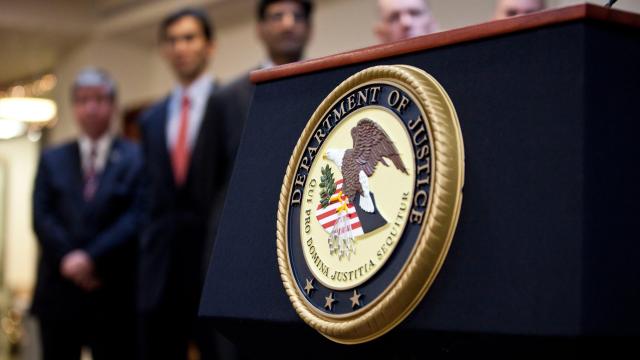The U.S. Department of Justice will no longer secretly obtain the records of journalists during leak investigations, the White House said in a statement Saturday.
“While the White House does not intervene in criminal investigations, the issuing of subpoenas for the records of reporters in leak investigations is not consistent with the President’s policy direction to the Department, and the Department of Justice has reconfirmed it will not be used moving forward,” said White House press secretary Jen Psaki.
In a separate statement, Justice Department spokesperson Anthony Coley said the agency is “committed to taking all appropriate steps to ensure the independence of journalists.”
“Going forward, consistent with the President’s direction, this Department of Justice — in a change to its longstanding practice — will not seek compulsory legal process in leak investigations to obtain source information from members of the news media doing their jobs,” Coley said Saturday, as reported by Politico.
The reversal follows several alarming reports that the DOJ under President Donald Trump quietly seized reporters’ phone records and fought to obtain email logs for journalists at the New York Times, Washington Post, and CNN in a hunt for possible informants at the agency. These efforts have only recently come to light, but purportedly went on behind the scenes as Trump publicly lambasted leakers as “traitors and cowards” and his administration pledged to crack down both on reporters and their sources inside the federal government.
Justice Department regulations typically mandate that news organisations be notified whenever it subpoenas the records of journalists. However, while the Trump administration initiated these investigations, officials apparently left the notification part for Biden’s team to deal with.
The Post was not informed until last month that the Trump administration seized months of phone records from 2017 for three of its reporters and tried to obtain their email records as well. The DOJ also reportedly targeted a CNN correspondent and recently informed the outlet that it obtained their phone and email records for the months of June and July that same year.
On Friday, the Times reported the DOJ had in 2020 seized months of phone records from early 2017 for four Times reporters and, as with the Post, also fought to access their email logs. The Justice Department under Biden continued the investigation but informed a select few Times executives of its existence, the outlet reported. However, the government issued a gag order on March 3 to keep these executives from going public with the information, according to New York Times lawyer David McCraw, who called the move unprecedented. He said Friday that a federal court had lifted the order.
In Saturday’s statement, Psaki said “no one at the White House” had been aware of the gag order until Friday evening.
Administrations from both sides of the aisle have used court orders over the years to obtain journalists’ records as part of investigations into leakers that reveal sensitive information, the Associated Press reports. However, the practice has come under fire in recent months when it was revealed that the DOJ informed major publications of their subpoenas nearly a year after the fact.
In May, President Joe Biden publicly denounced the practice as “simply, simply wrong” and pledged to prevent the Justice Department from seeking reporters’ phone records moving forward. His pledge was not immediately backed by an official policy change, and, as AP notes, it seems to contradict Psaki’s earlier comments that the administration intended to use “the Holder model,” named after Obama-era Attorney General Eric Holder. Holder’s guidelines revised certain protocols and instituted additional levels of review before a journalist can be subpoenaed but did not end the practice altogether.
Saturday’s statements from the White House and Justice Department signal the federal government’s official reversal from relying on the controversial investigative tactic. However, some critics argue that putting a stop to the practice doesn’t go far enough. On Saturday, Washington Post executive editor Sally Buzbee pushed for the White House to provide full transparency and implement stricter protections for news organisations.
“We call on the Biden administration and the Department of Justice to provide a full accounting of the chain of events in both administrations and to implement enduring protections to prevent any future recurrence,” she said in a statement shared on Twitter.
